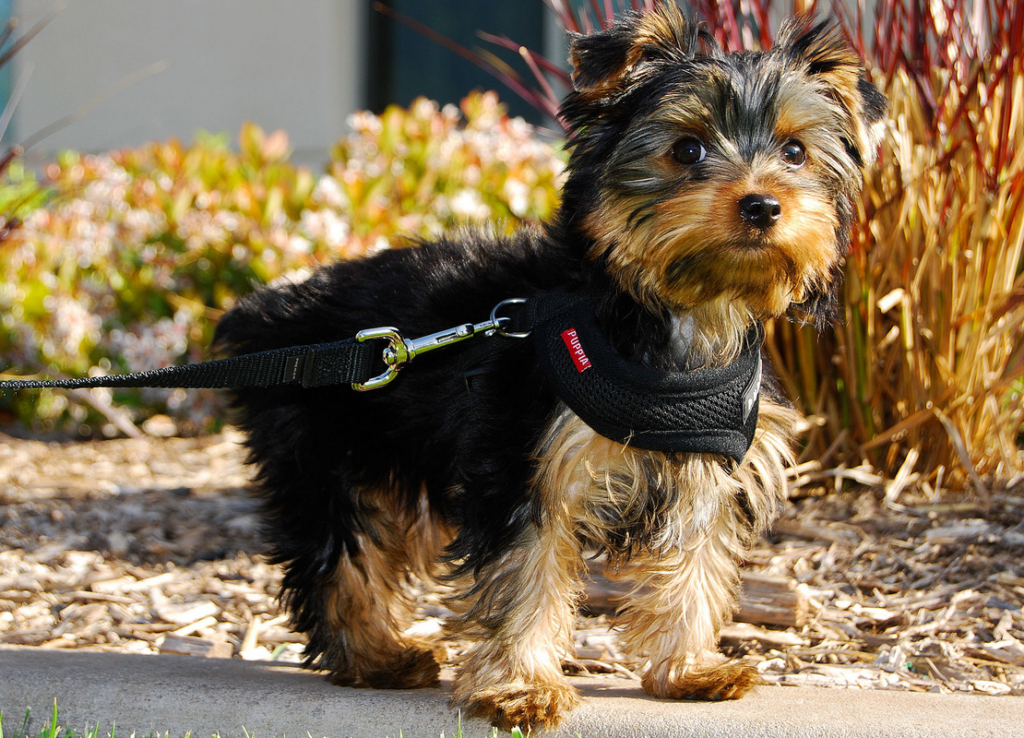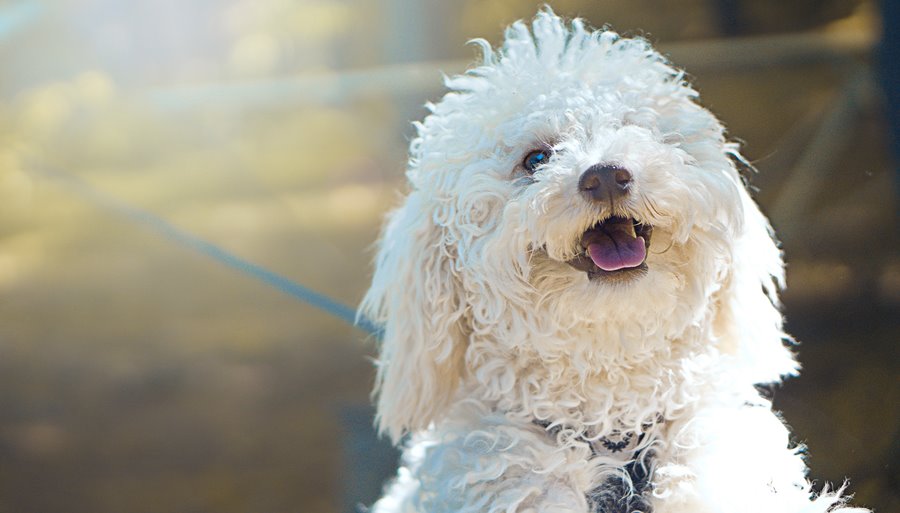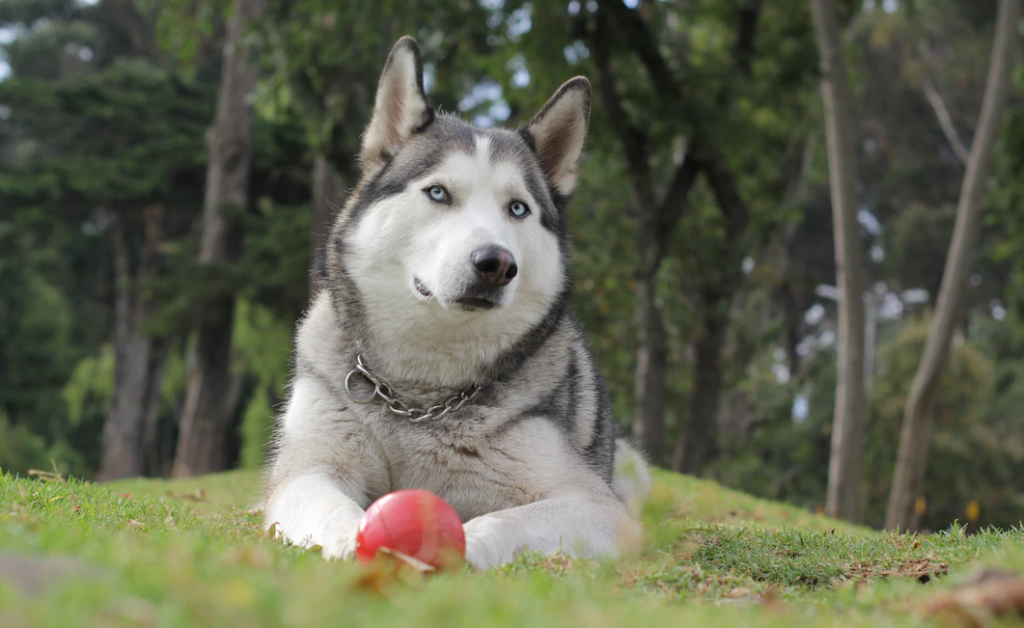Ever had a mealtime standoff with your furry friend? If so, you are not alone. Many dog parents find themselves in a bit of a pickle with their canine companions who turn their noses up at almost anything that’s put in their dish. Understanding and addressing these finicky eating habits is crucial to ensure your pet gets the proper nutrition it needs.

Picky eating in dogs can be characterized by various behaviors. Some dogs might just nibble at their food, while others may outright refuse to eat. It’s important to note that occasional pickiness is generally not a cause for concern. However, if your dog frequently skips meals or shows a sudden change in appetite, it might be time to consult a vet.
Interestingly, some dog breeds have a reputation for being pickier eaters than others. Small breeds like Maltese, Bichon Frise, and Yorkies often have very specific food preferences. But don’t be fooled, size isn’t always the determining factor. Some larger breeds, such as Huskies and Great Danes, can also be notoriously fussy eaters.
The challenge with these selective eaters is ensuring they get a well-balanced diet. Picky dogs often miss out on essential nutrients, which can lead to health issues over time. For instance, a dog that refuses to eat meat may lack enough protein. Or a dog that only eats one type of food may miss out on various vitamins and minerals.
Identifying Signs of Picky Eating in Dogs
Imagine being able to detect the subtle signs your canine pal is turning into a picky eater before it drastically affects their health and well-being. Sounds like a vital skill for any devoted dog parent, doesn’t it? Let’s dive into the art of identifying picky eating habits in your favorite four-legged friend.
Common Behaviors of Fussy Canine Eaters
Every dog is unique and may express their selective eating habits differently. However, there are a few common behaviors to watch out for. These include:
- Ignoring food: If your dog suddenly becomes indifferent to meals they previously enjoyed, they might be turning into a picky eater.
- Nibbling: Picky eaters often nibble at their food instead of eating it outright. If your dog takes forever to finish a meal or leaves half of it untouched, it’s a sign they’re not keen on it.
- Showing more interest in treats: If your dog readily accepts treats but turns their nose up at their food bowl, they’re likely being selective about their diet.
- Food guarding: Some picky dogs may guard their food from other pets or humans, indicating a certain level of discomfort around their meals.
When to Be Concerned About Your Dog’s Eating Habits
Now that we’ve covered how to spot picky eating behaviors, let’s talk about when these habits might be cause for concern. Not all picky dogs are in peril, after all. Sometimes, a dog’s fussy eating is just a personality trait. However, certain situations warrant more attention:
- Rapid Weight Loss: If your dog is losing weight rapidly despite having access to food, their picky eating could be hiding serious health issues. It’s vital to consult a vet under such circumstances.
- Behavioral Changes: Is your once playful pooch now lethargic and uninterested in their favorite activities? Changes in behavior coupled with picky eating can be a sign of underlying health concerns.
- Overly selective eating: If your dog refuses to eat anything other than one type of food or treat, they could be missing out on essential nutrients. This calls for a change in diet and possibly a vet’s intervention.
In the world of “dog breeds that are picky eaters”, understanding these signs and knowing when to take action is crucial. It’s not just about keeping your dog happy at meal times, but also ensuring they’re getting the nutrition they need for a healthy, active life. So, the next time your pup turns their nose up at dinner, you’ll be better equipped to handle it. Stay tuned for more tips on navigating the tricky terrain of fussy canine eating habits!

Top Dog Breeds Known for Being Picky Eaters
Certain dog breeds are notorious for their picky eating habits. While the specific preferences can vary from one dog to another, certain patterns are observed within specific breeds. It’s important to remember that the dog’s size can also play a role in their eating tendencies. Here, we’ll be looking at both small and large breeds known for their selective pallets.
Small Breeds with Notorious Picky Eating Tendencies
Small dog breeds are often stereotyped as being picky eaters, and in many cases, there’s truth to these claims. Here are a few examples:
- Yorkshire Terriers: These petite pups are known for their discerning taste buds. They often prefer premium dog foods with high-quality, natural ingredients.
- Maltese: This breed is often fussy about food textures. They might reject certain kibbles while wholeheartedly devouring others.
- Chihuahuas: These tiny dogs can be quite stubborn about their meals. They often prefer smaller pieces of food that are easy to chew and digest.
- Pomeranians: These fluffy companions are also known to be very selective eaters, often preferring certain protein sources over others.
Large Breeds That May Exhibit Fussy Eating Behaviors
While picky eating is more common among small breeds, a number of larger breeds can also display fussy eating behaviors:
- Labrador Retrievers: While they’re often known to eat whatever is put in front of them, some Labs can be surprisingly selective, particularly about the freshness and temperature of their food.
- Boxers: These dogs are known for their sensitive stomachs, which can make them wary of trying new foods.
- Dalmatians: Dalmatians often have specific dietary needs due to their predisposition to urinary stones. This situation can make them seem pickier about their food.
- Great Danes: These gentle giants often prefer slow-cooked foods or high-quality kibble, turning their noses up at lower quality options.
While it’s important to note that every dog is unique, understanding these general breed tendencies can help you better cater to your furry friend’s dietary preferences. However, if your dog is consistently refusing to eat, or if their pickiness seems to be causing weight loss or other health problems, it’s important to consult with a veterinarian to rule out any underlying health issues.
Remember, being a picky eater isn’t a bad thing. In fact, it’s quite normal. As pet parents, it’s on us to understand our dog’s preferences and ensure they’re getting nutritionally balanced meals, even if their tastes are more discerning than most.
Nutritional Challenges for Picky Eater Dog Breeds
Balancing Diet and Preferences for Fussy Canines
One of the most significant challenges that picky eater dog breeds present is the delicate balance between their dietary needs and their specific preferences. Contrary to popular belief, dogs are not omnivores like us humans, but rather opportunistic carnivores. This means they thrive on a high-protein diet.
However, for those dog breeds that are picky eaters, they may turn their noses up at high-quality protein sources in favor of less nutritious options. They may prefer certain flavors or textures, and this can significantly limit the range of foods they are willing to eat.
To deal with this, you may need to experiment with different types of dog food. For example, your dog may prefer wet food over dry kibble, or vice versa. Nutrient-dense foods that also appeal to your dog’s particular preferences are the best option.
Essential Nutrients Often Lacking in Picky Eaters’ Diets
A fussy canine’s selective eating habits can often result in a diet that lacks essential nutrients. Here are few key ones to watch out for:
– Protein: It’s vital for growth, tissue repair, immune function, and more. Some fussy dogs may refuse certain types of meat, limiting their protein intake.
– Fats: They provide energy, and are required for the absorption of certain vitamins. A dog that’s picky about eating may not consume enough fats.
– Vitamins and Minerals: These are critical for various body functions. For example, calcium and phosphorus are needed for strong bones and teeth, and certain vitamins are essential for nerve function and hormone production.
Overcoming Nutritional Challenges for Picky Eater Dog Breeds
The first step is to understand the nutritional needs of your dog’s breed and age. For instance, puppies need more protein and fat compared to adult dogs, while senior dogs might require more fiber in their diet.
Try mixing in some cooked vegetables with their favorite meat, or consider a high-quality supplement if your vet agrees. Also, remember that some human foods can be hazardous to dogs, so always check before giving them anything new.
Feeding a picky eater can be challenging, but remember, patience and perseverance are key. It might take time to find a food that your dog loves and that provides the nutrition they need. If your dog’s picky eating habits continue despite your best efforts, it’s a good idea to consult with your vet to rule out underlying health issues.
Remember, every dog is unique, and what works for one might not work for another. The goal is to find a balance between what your dog likes to eat and what they need to eat for optimal health.

List of Specific Dog Breeds That Are Picky Eaters
Picky eating is not exclusive to any particular breed of dogs. However, some breeds are more notorious for their selective eating habits than others. Let’s delve into some of these breeds and understand their unique dietary preferences.
Toy and Small Breed Dogs That Are Selective Eaters
1. Yorkshire Terriers: These tiny dogs are known for their discerning palates. They often prefer smaller kibble sizes and may turn their noses up at food that doesn’t meet their standards.
2. Maltese: Maltese dogs are finicky eaters and may require a varied diet to maintain interest in their food. They also have a tendency to prefer wet food over dry kibble.
3. Shih Tzu: This breed is known for its picky eating habits. Shih Tzus often prefer fresh, high-quality ingredients and may reject food that doesn’t meet their expectations.
4. Pomeranians: Pomeranians are not just picky about their food; they’re also known for eating in small quantities. They often prefer food that’s easy to chew and digest.
5. Dachshunds: These little dogs can be quite stubborn when it comes to their food. They may refuse to eat if they don’t like the taste or texture of their meals.
Medium to Large Breed Dogs with Picky Eating Patterns
1. Boxers: Boxers are known for their selective eating habits. They often prefer high-protein diets and may reject food that doesn’t meet their nutritional needs.
2. Huskies: Huskies are notorious for being picky eaters. They have a low appetite and may require a diverse diet to maintain interest in their food.
3. Labradors: While Labradors are known for their love of food, some can be quite particular about what they eat. They may prefer certain flavors or types of food over others.
4. Golden Retrievers: Some Golden Retrievers can be selective eaters, especially if they’ve been spoiled with table scraps or treats. They may reject their regular dog food in favor of more flavorful options.
5. Great Danes: Great Danes are known for their delicate digestive systems, which can make them picky eaters. They often require a specialized diet to ensure they’re getting the right nutrients without upsetting their stomachs.
Remember, each dog is unique, and their dietary preferences can be influenced by a variety of factors, including their age, health, and past experiences with food. Always consult with a veterinarian or a pet nutritionist if you’re concerned about your dog’s eating habits. They can provide personalized advice and guidance to ensure your furry friend is getting the right nutrition.
Creating a Feeding Strategy for Picky Eater Dog Breeds
Creating an effective feeding strategy for picky dog breeds is crucial in ensuring they receive the right balance of nutrients their bodies require. Remember, not all dogs are the same, what works for one breed might not work for another. So, it’s important to devise a feeding plan that suits your dog’s specific needs. Let’s explore two main components of a successful feeding strategy: structured feeding times and portion control, and the role of food variety and rotation.
Structured Feeding Times and Portion Control
Consistency plays a significant role in managing your dog’s selective eating habits. Instead of leaving food out all day, establish specific feeding times. This approach, known as meal feeding, can stimulate your dog’s appetite and make meal times more appealing. Typically, adult dogs should be fed twice a day — morning and evening.
Portion control is equally important. The amount of food your dog should consume depends on their breed, size, age, and activity level. Overfeeding can lead to obesity, while underfeeding may result in nutrient deficiencies. Therefore, consult your vet to determine the appropriate food quantity for your dog. Measure their food using a standard measuring cup to ensure accuracy.
The Role of Food Variety and Rotation
Just like us, dogs can get bored with the same food every day. One way to deal with this is by introducing a rotation diet. This method involves varying your dog’s diet on a regular basis, whether daily, weekly, or monthly.
Rotating among different types of high-quality dog foods can make meal times more exciting for your fussy eater. This can be wet food, dry food, or a mix of both. You could also swap between flavours, like chicken, beef, or fish. Do note, however, that sudden changes in diet can upset your dog’s stomach. It’s advisable to gradually introduce new foods over a period of 7 to 10 days to allow their digestive system to adjust.
Food variety not only adds excitement to meal times but can also broaden the range of nutrients your dog receives. Different foods have different nutritional profiles, so rotating them can help ensure a balanced diet.
Remember, while dealing with picky eaters can be a challenge, patience and persistence can go a long way. Keep experimenting until you find a feeding strategy that works best for your furry friend. However, if your dog continues to reject food or lose weight, it’s time to consult a vet for professional advice.

Tips for Encouraging Picky Eater Dog Breeds to Eat
Dealing with picky eater dog breeds can be challenging, but using some proven strategies can help your furry friend develop healthier eating habits.
Enhancing Food Palatability for Fussy Canines
- Aromatic Foods: One of the most effective ways to enhance the palatability of your dog’s food is by using high-aroma foods. Dogs have an excellent sense of smell, and a deliciously scented dish could entice them to eat. Try warming their food slightly to release the aromas, or add a tasty topper like a small amount of salmon oil or low-sodium chicken broth.
- High-Quality Ingredients: Not all dog foods are created equal. Some brands use lower-quality ingredients that may not be as appetizing to your dog. Consider investing in a high-quality dog food with good quality proteins and nutrient-dense ingredients. The taste difference might just get your fussy eater excited about mealtime.
- Texture Variety: Some dogs are particular about the texture of their food. Experiment with different types of food – for example, if your dog has been turning their nose up at dry kibble, try introducing wet or semi-moist foods.
Positive Reinforcement Techniques for Meal Times
Positive reinforcement is a powerful tool when dealing with picky eater dog breeds. Here are some ways you can use it to promote better eating habits in your pet:
- Praise and Reward: When your dog eats their food, shower them with praise. Positive reinforcement will encourage them to repeat the behavior. You can also reward them occasionally with a healthy treat after they finish their meal.
- Regular Feeding Schedule: Dogs thrive on routines. Establish a regular feeding schedule and stick to it, which will help your pet anticipate meal times and be more likely to eat when food is offered.
- Make Mealtime Fun: Try using puzzle feeders or interactive toys that dispense food. This can make mealtime feel more like a game and less like a chore for your dog, encouraging them to eat more.
Remember, it’s essential to be patient with your picky eater. Changes in eating habits don’t happen overnight. If you’ve tried these strategies and your dog is still reluctant to eat, it may be time to consult with a veterinarian to rule out any possible underlying health concerns.
Regardless of the breed, every dog deserves a balanced diet that meets their nutritional needs. So, keep trying different strategies until you find what works best for your furry friend. After all, a well-fed dog is a happy and healthy dog!
When to Consult a Veterinarian About Your Dog’s Picky Eating
It’s important to keep in mind that not every case of a fussy eater dog is simply a matter of preference. Sometimes, underlying health issues could be causing your pet’s selective eating habits. Thus, knowing when to reach out to a veterinarian for your dog’s picky eating is crucial.
Identifying Underlying Health Issues
Unfortunately, picky eating patterns in some dog breeds that are picky eaters can sometimes be a symptom of a more serious health issue. Here are a few signs that your pet’s selective eating might be cause for concern:
- Sudden loss of appetite
- Weight loss or gain
- Changes in behavior or energy level
- Difficulty eating or swallowing
- Bloating or discomfort after eating
If your dog is showing any of these symptoms, it’s time to get professional help. Your vet will be able to run tests to rule out diseases like diabetes, liver problems, or dental issues that could be affecting your dog’s appetite. Remember, early detection is key to a successful treatment and recovery.
Professional Dietary Recommendations and Interventions
If you’ve tried everything – from rotating your pooch’s food to adding enticing toppings, but your furry companion remains a picky eater, don’t despair. Your vet can provide personalized advice based on your pet’s breed, health, and lifestyle. They can recommend high-quality commercial diets or prescribe therapeutic diets designed for dogs with specific nutritional needs. They’ll also guide you on portion sizes and feeding schedules to ensure your pet gets all the nutrients they need.
Furthermore, your vet might suggest a behavioral approach to encourage your dog to eat. This could involve removing the food after a certain amount of time, or training your dog to associate feeding times with positive experiences, like playtime or walks. Remember, what works for one dog might not work for another, so it’s important to try different strategies under the guidance of a professional.
It’s often tempting to give in and feed your picky eater dog anything they will eat. However, doing so could lead to nutritional deficiencies or obesity. Your veterinarian will help you strike a balance between keeping your dog healthy and catering to their finicky tastes.
Don’t let your dog’s picky eating habits stress you out. Remember, you’re not alone. Many pet parents are dealing with the same dilemma, and there’s plenty of help available from professionals who understand your concerns. In the end, ensuring your dog’s health and happiness is the most important thing, and sometimes, that means seeking advice from a professional.
So, if you’re still struggling with feeding one of the dog breeds that are picky eaters, take a deep breath, call your vet, and remember – you’re a great pet parent doing your best for your furry friend.
Frequently Asked Questions
Q1: What are some dog breeds that are known to be picky eaters?
A: Some breeds that are known to be picky eaters include the Yorkshire Terrier, Poodle, Shih Tzu, and Dachshund.
Q2: How can I encourage my picky eater dog to eat more?
A: You can try changing their food, adding some wet food to their dry kibble, or adding some low-sodium chicken broth to their food. Also, make sure to stick to a feeding schedule and avoid giving them too many treats in between meals.
Q3: Are there any specific nutritional needs for picky eater dogs?
A: Picky eater dogs do not have any specific nutritional needs different from other dogs. However, it is important to ensure they are getting a balanced diet. If your dog is refusing to eat certain foods, it might be lacking in some essential nutrients.
Q4: Is it okay to give human food to my picky eater dog to encourage them to eat?
A: While it’s okay to give your dog some types of human food, it’s important to make sure that the food is safe for dogs and does not contain any ingredients that could be harmful to them. Also, human food should not make up more than 10% of your dog’s diet.
Q5: Should I consult a vet if my dog is a picky eater?
A: Yes, if your dog is refusing to eat or is losing weight, it’s important to consult a vet. They can rule out any underlying health issues that might be causing your dog’s picky eating habits.
Dr. Candy, a holistic veterinarian and certified raw dog food nutrition specialist, graduated from Oklahoma State University in 2009 with a DVM and has since specialized in companion animal nutrition, advocating for species-specific diets. With a background in wildlife rehabilitation and oil spill response, she combines holistic health and conventional medicine in her unique approach to treating chronic diseases, allergies, and autoimmune conditions in pets. As the owner of a veterinary practice in Colorado and an author, Dr. Candy is dedicated to educating pet parents and improving the health and happiness of animals.




